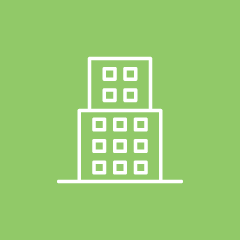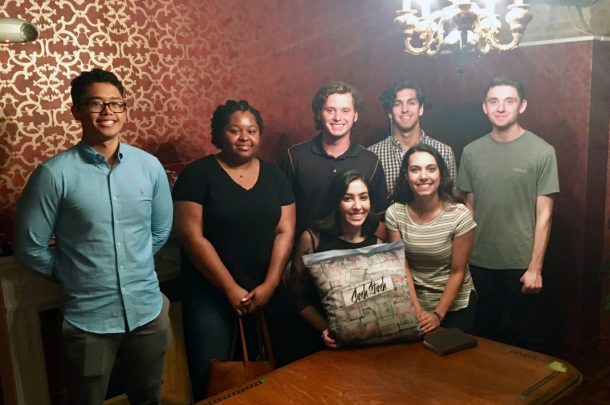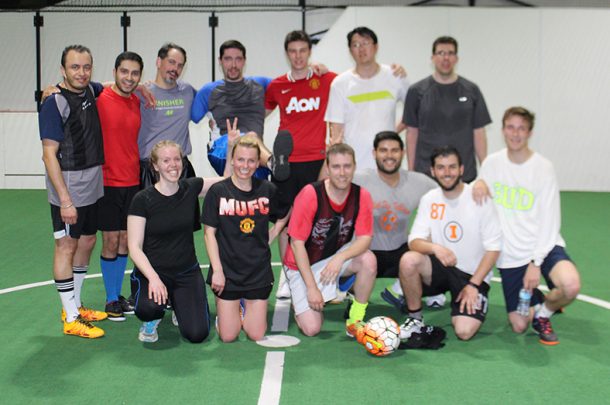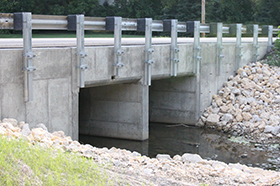
I began my Primera journey just a short two months ago and it’s hard to believe that my intern experience is nearing an end. Overall, my time in Primera’s Transportation division has been quite eye-opening and educational. Most importantly, the internship has taught me to be more of a leader and to be more confident in my work. I was given many different tasks similar to what the day-to-day role of a professional engineer is like and would like to share my experience for any future incoming interns or recent graduates looking to start a career in the AEC industry.
My internship at Primera was both rewarding and stressful at times. In school, I was used to having a set amount of time in which everything needs to be completed. However, at Primera interns are usually given different tasks to complete without any set deadlines. This is where the stress kicked in because I did not know how to pace myself. For me, this meant putting in extra hours. I was grateful for these extra hours because I got to see the entire process of what needs to be done when deadlines are approaching.
After a couple of weeks, I felt comfortable with my pace of work. This is where the internship was rewarding because I was able to learn something new and improve my technical skills, communication skills, and time management. Specific things that I learned were how to use and operate MicroStation, Projectwise, and Newforma. That, along with other computer applications, I was able to create cost estimates and write technical memorandums that were sent to the Illinois Tollway to repair and renovate existing retaining walls, noise abatement walls, and bridges along the I-355 Veterans Memorial Tollway.
Overall, my experience has been rewarding and I feel much more prepared for the real world. Here are the top 9 things I learned during my internship:
- Dress Professionally: Most companies want their employees to reflect the company name and dressing professionally can create a reliable and responsible persona.
- Don’t be afraid to go with your gut: Many projects or tasks you will be given do not have a direct answer. You were chosen for your position for a reason. This is where you should show your creativity and knowledge.
- Don’t be afraid to ask questions: It is as self-explanatory as you read it. Hey, you are the intern and you are here to learn. By asking questions, it shows that you are truly engaging in your work and you care about the outcome.
- Learn something new each day: Being fresh into the real world, learning the professional side of engineering is going to be new. There are going to be coworkers or even friends that have experience that can help you. Having a mentor is a huge plus because he or she has seen it all and will guide you in the right direction.
- Come in early and leave late: You are a baby fish in the ocean and you need to work your way up. Coming in early and staying late not only gives you more time to complete your work, but shows the dedication you have to the job. People do recognize the time you put in.
- Keeping a professional and cordial relationship with other employees: Being polite and keeping a professional relationship with your fellow employees makes your life at work easier and a more enjoyable experience.
- Save your projects: Keeping your work (with proper approval, of course) from projects will help you in the future when you want to talk to future employers or fellow engineers. People are fascinated by the work you do and if you ever need to refresh your memory on something, then it will be there for you.
- Expand your networking skills: Many engineers choose this field because communication is not their strong point. As much as one does not like that, communication is key in every job you do. You never know who you will meet and what the outcome will be. Casual conversations can turn into an interview the very next week. Networking can also help your company. Now rolling over to social networking, having a LinkedIn profile is absolutely necessary in this day and age. I believe that it is an unofficial resume that employers look at when trying to find new employees. Therefore, if you do not have one, please create one and always keep it updated.
- Accept constructive criticism: Being a new engineer can be tough because you do not know all the details that come along with a new engineering position. Many other employees have been around longer and are available to check and/or correct your work. It’s important to remember that we are young and still have plenty to learn. Accept the advice you receive as constructive criticism as it will help you grow in the long run – into a successful engineer.
The best part about the entire experience is that I feel I have a better perspective about the industry, have developed my skills and have made lasting connections with my fellow colleagues. I look forward to continuing my engineering career with Primera, or a similar company, on a full-time basis after graduation.





 5 Reasons to Intern with Primera
5 Reasons to Intern with Primera 







